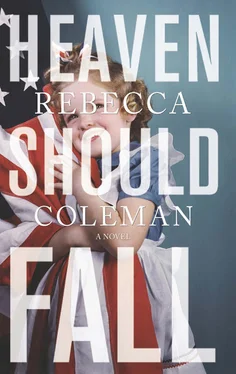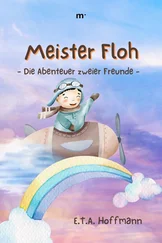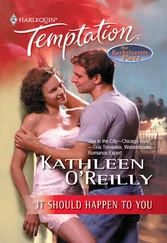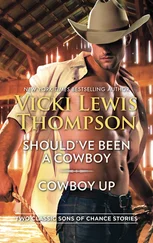He came back into the house and jerked open the bifold door of the laundry closet, then opened the dryer, spilling out clean clothes onto the floor as he searched for a fresh T-shirt. I asked, “Are you going with him?”
“I’m driving down there now. They wouldn’t let anyone come in the ambulance. Said we needed to follow in a car. Dodge is already on the way, with Dad.”
“What happened? Is he going to be all right?”
He pulled a shirt over his head and looked at me as though I had asked the stupidest possible question. “He shot himself in the head, Jill.”
“Okay, but do you think they can save him?”
“Of course they can’t save him. He’s dead. You think a guy like Elias doesn’t know how to pull off something like that? Did you see my hands?” He felt in the pockets of his jeans. “Damn it, where are my keys?”
“But I saw him. I just saw him first thing this morning. I know I did.”
“Well, I just saw him, too. Jesus Christ.” He pulled off his watch and dropped it onto the counter. Smears of blood marked both the countertop and his skin. “Get rid of all that, will you? My mom’s going to have a nervous breakdown if she sees it, and I gotta go.”
I tore off a paper towel. “Do you want me to come with you? I can leave TJ with Candy. Maybe they can save him. You won’t know until they get him there.”
“He’s dead, Jill. And no, you can’t come. It’ll be hours and hours. I’ll have to help Dad figure out where to send him and how to fill out all the paperwork. And when the hospital files their report, I want them to know every last detail. I want them to know who’s accountable.”
I set TJ on my shoulder to burp him. “What do you mean, who’s accountable? Nobody’s going to think it was you or Dodge.”
“I mean so they know it’s the army that did it. So it’s on the record that they broke this poor bastard and then ignored him and blew him off, and when he tried to get help they threw some pills at him, and then he shot himself because they’d turned him into a drug addict.” The volume of his voice ramped up gradually with each sentence, until he was nearly shouting. “I want it to be on that last line on his death certificate. ‘Cause of death: homicide.’”
“Cade…they’re not going to do that.”
“They’d better. It’s criminal. You don’t agree with me? You don’t think they royally screwed him over?”
“I never said I didn’t agree. I just said there’s no recourse.”
“It’s my opinion,” Cade began, leaning toward me with his hands against the kitchen island, “that people are endowed by their Creator with certain unalienable rights, namely life, liberty and the pursuit of happiness.”
“Nobody’s arguing with you.”
“And whenever any form of government becomes destructive to these ends, it’s the right of the people to alter or abolish it. That’s my right and my duty.”
I stood up and joggled TJ on my shoulder. “Cade, don’t go in there with your sleeves rolled up quoting the Declaration of Independence. They’ll think you’re a nut job. The important thing is to get Elias taken care of.”
Cade threw his arms in the air. “He’s dead! ”
“I just saw him!” I shouted back again, and in the moment I felt so passionately correct that nothing would ever have convinced me otherwise. “I bled a lot, too, and here I am! So don’t you write him off until someone with a degree who knows what they’re talking about tells you different!”
He swore at me, grabbed his keys from the hook and slammed the front door.
It would be many hours before I saw him again. And by the time he walked back in the door, dry-eyed and grim and smelling of cigarette smoke, I’d had much more time to consider all that had been said.
I felt sorry for what I’d said about hearing it from a person with a degree. I knew that must have been salt in the wound for Cade, that only a person who had finished college was qualified to judge what he himself had seen.
I believed, finally, that Elias was dead.
And I thought, where the army was concerned, Cade might be right. Maybe it was the army’s fault for throwing him back into the world when he returned from war, woefully ill equipped to make his way through the battlefield of normalcy. Maybe it was their fault for nurturing a culture in which he couldn’t admit need without acknowledging failure.
But also came the terrible thought that it was my fault, too. For not listening to my mother’s voice that had whispered to me so insistently over these past months, warning me that what we were doing for Elias was not enough—never enough. For not recognizing, the previous afternoon, that Elias was trying to make his peace with me and Cade. And worst of all was not what I had failed to do, but what I had done: how I, with the best of intentions, had led him to love me. Deep in my heart I had known for months that his fondness for me was not sisterly, but in spite of that I laid my hands on his shoulders and my son in his arms and expected him to find it a comfort and not a burden.
For a long time after the funeral it seemed always to be on my mind—the constant question of whether my friendship with Elias played a role in his death. He left no note, no letters, no explanation. In the infinite stretch of time that followed, some days I told myself it was egotistical to assume I had a part in it at all. He was addicted, in pain, mentally ill. None of those things had anything to do with me. But I couldn’t get away from the belief, down in the core of me, that it was true. Elias’s mind was a crowded room of people he could never get his arms around: not to hold, not to carry, not to save. And so he put a bullet in it, and in doing so joined most of them, and left only one behind.
Elias
Today is the day I will die . The words scrolled through his mind every morning as he awoke, like the news ticker on CNN, steady and plain. With his arms still tucked beneath his pillow, his face pushed into its foam, he would mull on the thought until he had accepted it. Some days it was easy, especially if the previous patrol shift had gone very well or very badly. A good day meant he was ready to die. A bad day meant he might as well.
He rolled out of bed and followed the smell to the bathroom. Above the urinal was a message scrawled in thick marker: VALOR HONOR DUTY QUIT WHINING, followed by a second message scratched beneath it in ballpoint pen, in shaded block letters to make up for the wimpier medium—FUCK YOU SIR.
Get dressed. First smoke of the day. Three doughnuts and an omelet. And it was time to go on patrol.
* * *
Before he’d deployed, Candy had given him a book of daily devotionals to take with him. Each day had a Bible verse and inspiring story and ended with some kind of affirmation, like “I know that my redeemer lives” or “I dedicate this day to you, Lord.” After a while it got to be too much to lug around, and he gave it away. The skills of being a soldier were straightforward, but the brain game was a paradox. He never prayed for his own safety, because it somehow felt cowardly, but the whole day became a long rosary for every soldier who crossed his path: Protect him today, Lord. And him. And her. And even though he began every day with an affirmation that he would die, he knew that wasn’t the struggle; there were harder things to reconcile. At the end of it all, you die whether or not you’re prepared to. But he still couldn’t bring himself to think upon awakening, Today is the day I’ll kill somebody.
* * *
His patrol shift was set to end at seven. The day had been slow, hot and boring; they had spent the shift driving around the desert in the Cougar—an imposing hulk of a vehicle, solid as a safe at Fort Knox, with Elias in the machine-gun turret at the top. Now the sun was setting behind the western stretch of land not marked by any mountains, and bands of tangerine and gold streaked the sky. Sunkist, Elias thought. The sky looked like the soft-drink can, and the small fireball of a sun completed the image. The suffocating heat was starting to dissipate ever so slightly; the sweat that trickled to his jaw felt cool. This side of the landscape was disorienting to him, so flat and singularly pale, a planet other than his own. He could sense his pupils contract and open again as he looked at it, like they couldn’t figure out what they were seeing or determine whether to gaze close or far. He was tired.
Читать дальше












